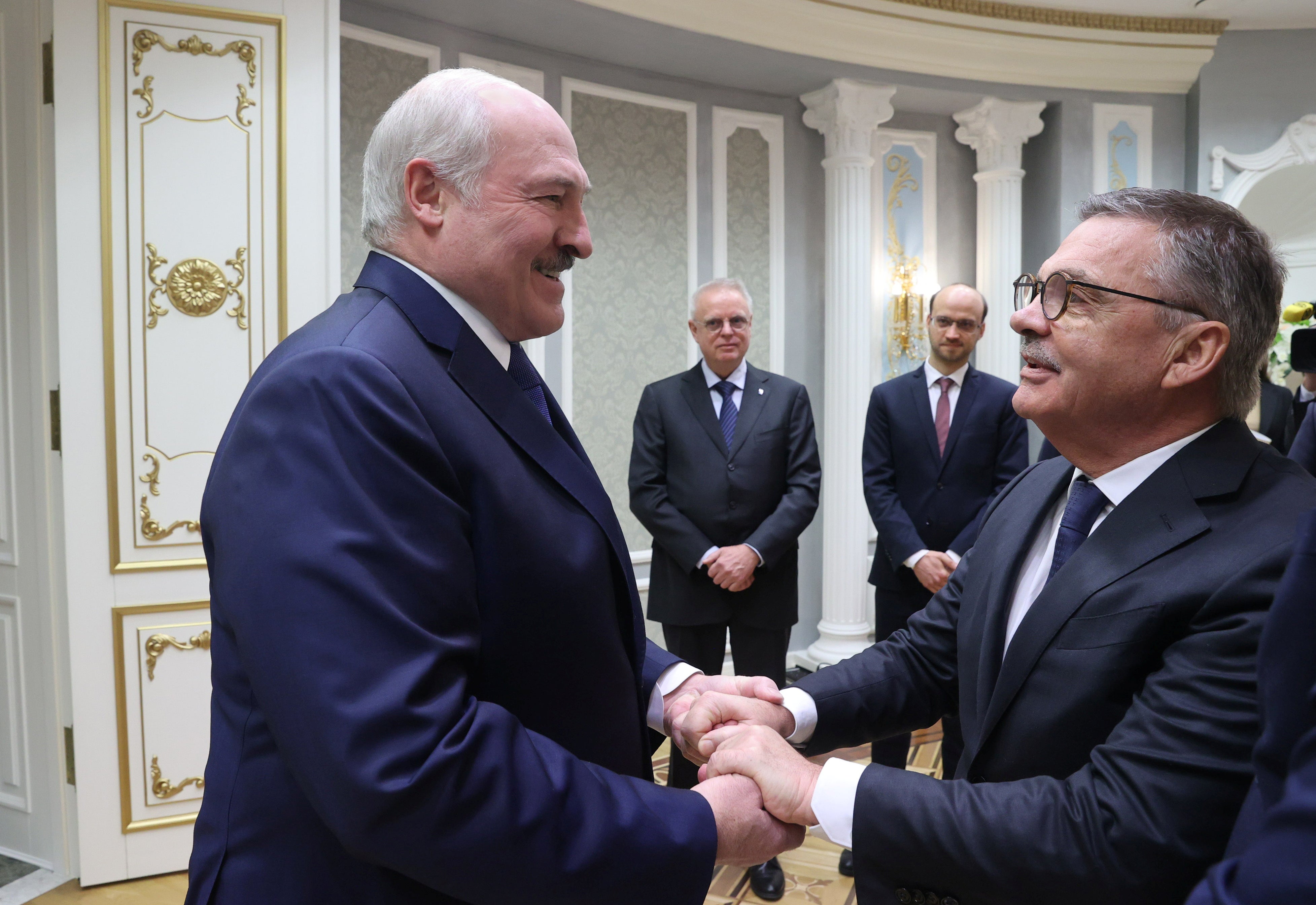Sport and politics will collide when Belarus co-hosts the 2021 ice hockey World Cup
Months of protests over the election of Alexander Lukashenko did nothing to deter Rene Fasel, the president of the International Ice Hockey Federation, writes David Harding


Ice hokey and international politics rarely mix, but in 2021 they will.
The sport's World Cup will be played in May and June and one of the co-hosts is Belarus, the country where there has been five months of protests since the presidential election was stolen by Alexander Lukashenko.
In the time since the election, the apparent winner Sviatlana Tsikhanouskaya has fled into exile in Lithuania, there have been 33,000 arrests, 1,000 cases of torture, and scores of political prisoners remain in jail.
None of this though deterred Rene Fasel, the Swiss dentist turned president of the International Ice Hockey Federation.
Earlier this week he greeted Lukashenko with a bear hug, a big smile and dismissed criticism of his meeting with the dictator with the nonsense cliche that sports and politics shouldn't mix, ignoring the fact that his act of travelling to Minsk did exactly that. Even by the awful standards of sporting federations it was a low.
The co-host of the tournament, Latvia, and the European Union have already called on Belarus to be stripped of the tournament.
There is plenty of time yet to wipe the smile from Fasel's face before May, and the contentious location of the tournament will put the sport of ice hockey under a level of scrutiny it has rarely felt.
But it is not a sport immune to mixing with politics, whatever Fasel says. There was the “Miracle on the Ice” moment of 1980 when the US beat the USSR to Olympics gold, in a match dripping with Cold War overtones, then lionised by Hollywood.

But perhaps more relevant for this year were events in Czechoslovakia in 1969.
Twelve months previously, Soviet tanks had rumbled into the central European country to put down the “Prague Spring”, a brief period of political liberalisation in a time of iron Soviet rule of the region.
With protests seemingly squashed, Czechoslovakia and the USSR met in the ice hockey world championships in March 1969. Surprisingly the Czechs won, prompting hundreds of thousands to take to Prague's streets with slogans and banners such as "Czechoslovakia 4 – Occupation forces 3!".
The Soviet response was swift and they quickly suppressed demonstrations and removed Alexander Dubcek, the head of the country, who had overseen the liberalisation.
The ending was unhappy for the Czechs – penalised for the kind of reforms that would be tried by the Soviets under Gorbachev – but what the events demonstrated was that protest movements can be galvanised by sport. That a single, high-profile event can be used to air grievances and great injustices as the world watches on. The ice hockey in Belarus might end up being not quite the celebratory event Lukashenko and Fasel think it is.
Yours,
David Harding
International editor
Join our commenting forum
Join thought-provoking conversations, follow other Independent readers and see their replies
Comments


Bookmark popover
Removed from bookmarks